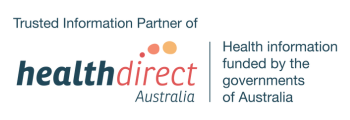Reproductive abuse
- Reproductive abuse can also be called reproductive violence or reproductive coercion
- It happens when you are stopped from making your own choices about your reproductive system and health
- You should never feel pressure to do something you are confused or unsure about
- 1800RESPECT provides, confidential counselling support, information and referrals.
- If you or someone you know is experiencing reproductive abuse, you can call 1800RESPECT on 1800 737 732, text 0458 737 732 or visit our website for online chat and video call services – available 24/7.
What is reproductive abuse?
Reproductive abuse happens when you are stopped from making your own choices about your reproductive system. Your reproductive system includes the parts and functions of the body involved in the menstrual cycle, sex and sexual pleasure, pregnancy and birth.
Reproductive abuse can include people:
- Forcing or pressuring you to become pregnant
- Forcing or pressuring you to have a baby or an abortion
- Forcing or pressuring you to have an operation to stop you from being able to have a baby (sterilisation)
- Making you have unprotected sex
- Doing things to stop your birth control (including the pill, condoms, diaphragms and others) from working
- Hiding your birth control or stopping you from buying it
- Stopping you from having emergency contraception when you need it (such as 'the morning after pill')
- Knowingly passing on a sexually transmitted infection to you
- Stopping you from accessing reproductive healthcare, including screening tests for sexually transmitted infections, breast cancer and cervical cancer (pap smears)
- Forcing or pressuring you to take medication or have an operation to stop your periods (forced menstrual suppression)
- Forcing or pressuring you to have operations to remove parts of your genitals
- Preventing or limiting your access to sexual health services and information
- Stopping or discouraging informed and consensual sexual expression
- Not actively seeking your consent.
Reproductive abuse can be a form of domestic or family violence. If you or someone you know is experiencing reproductive abuse it is OK to ask for help.
Reproductive abuse can include people forcing or pressuring you to have an operation to stop you from being able to have a baby, or hiding your birth control or stopping you from buying it.
Making decisions about your body and your health
Sometimes doctors or other medical professionals will make suggestions about what they feel is best for your health. There are times when having an operation, or taking or stopping medicine might be needed for you to stay well. These suggestions should always be explained to you in a way you understand. You should not feel pressured to make a decision about your body when you are confused or unsure about what is involved and why it is being suggested.
You may find it helpful to bring someone you trust to any appointments or discussions about your body and your health. An advocate may also be able to help you with understanding any health issues and your rights when it comes to your body and health. In the end, what happens to your body should always be your choice.
Who is responsible for reproductive abuse?
Reproductive abuse can happen in any relationship, including with:
- Boyfriends, girlfriends, partners, husbands or wives
- Ex-boyfriends, ex-girlfriends, ex-partners, ex-husbands or ex-wives
- Carers or paid support workers
- Parents, guardians or other family members
- Adult children
- Other people you live with or see often, whether inside or outside the home.
None of these people has the right to make you do things you are not comfortable with.
Broader health services support available
For health advice and information, including about your reproductive health, visit the healthdirect.gov.au website or call 1800 022 222, 24 hours a day, 7 days a week.
1800RESPECT is a Healthdirect Information Partner listed alongside other Australian health organisations that provide information, resources and support. Find more information about 1800RESPECT’s listing on Healthdirect here.



